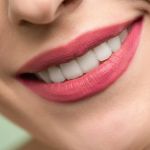Why an Oral Health Routine is Crucial in Elderly Care: Ensuring Healthy Smiles for Seniors
- Understanding Oral Health in Elderly Care
- Why an Oral Health Routine is Crucial for Seniors
- Key Factors Affecting Oral Health in Seniors
- Creating an Effective Oral Health Routine for Seniors
- Real-Life Case Studies on Elderly Oral Care
1. Understanding Oral Health in Elderly Care
As people age, maintaining good oral health becomes increasingly important. In elderly care, oral health is often overlooked, yet it plays a vital role in overall well-being. Poor oral hygiene can lead to various health complications, including tooth decay, gum disease, and even more serious conditions like heart disease and diabetes. A routine oral care regimen is essential to prevent these issues and maintain a high quality of life for seniors.
2. Why an Oral Health Routine is Crucial for Seniors
Oral health routines are essential for seniors for several reasons:
- Prevents Gum Disease: Seniors are at a higher risk for gum disease due to weakened immune systems, medications, and age-related changes in oral tissues. A regular oral health routine that includes brushing, flossing, and routine check-ups helps prevent gum disease, which can lead to tooth loss.
- Reduces Risk of Systemic Health Issues: Oral health has been linked to various systemic diseases. Studies show that untreated gum disease can increase the risk of conditions like heart disease, stroke, and diabetes. Maintaining good oral hygiene can significantly reduce these risks.
- Improves Nutrition and Comfort: Poor oral health can affect seniors' ability to chew and eat properly, leading to malnutrition and discomfort. Regular dental care helps maintain teeth and gums, ensuring that seniors can continue to enjoy a healthy diet.
- Enhances Quality of Life: A healthy smile boosts confidence and self-esteem, which is crucial for mental and emotional well-being. Seniors who maintain good oral health often experience improved self-image and social interactions.
Clearly, establishing and sticking to an oral health routine is essential for seniors. But what are the key factors that affect their oral health, and how can you create an effective routine? Let’s explore further.
3. Key Factors Affecting Oral Health in Seniors
Several factors contribute to oral health issues in older adults. Understanding these factors can help caregivers and healthcare professionals create a more tailored oral health routine for seniors:
- Medications: Many seniors take medications that can dry out the mouth, increasing the risk of cavities and gum disease. Dry mouth is a common side effect of medications like antihistamines, diuretics, and painkillers. This condition reduces saliva, which is essential for washing away food particles and bacteria.
- Physical Limitations: Arthritis or other physical disabilities can make it difficult for seniors to brush and floss properly. Caregivers may need to assist or provide special tools to help with this aspect of oral hygiene.
- Chronic Diseases: Conditions like diabetes, heart disease, and dementia can significantly impact oral health. Diabetes, for example, increases the risk of gum disease, while dementia may impair a senior’s ability to perform daily oral hygiene routines.
- Dietary Habits: Seniors often have dietary restrictions, but certain foods can also contribute to oral health issues. For example, sugary foods and drinks can lead to cavities, while acidic foods can erode tooth enamel. A balanced diet rich in vitamins and minerals is essential for oral health.
By considering these factors, caregivers can create a more personalized and effective oral health routine for seniors, addressing any challenges they may face.
4. Creating an Effective Oral Health Routine for Seniors
Establishing a consistent and thorough oral health routine is key to maintaining good oral hygiene in elderly care. Here are some steps to include in a senior’s oral care routine:
- Brushing: Seniors should brush their teeth at least twice a day with fluoride toothpaste. If manual dexterity is an issue, consider using an electric toothbrush, which may be easier to handle and more effective at cleaning teeth.
- Flossing: Flossing is important to remove food particles and plaque from between teeth, where a toothbrush might not reach. If flossing is difficult, alternatives like floss holders or interdental brushes can help.
- Regular Checkups: Seniors should visit the dentist at least twice a year for checkups and cleanings. Regular professional dental care ensures that any issues, such as cavities or gum disease, are detected early and treated promptly.
- Hydration: Encouraging seniors to drink plenty of water throughout the day can help prevent dry mouth, especially if they are taking medications that reduce saliva flow. Some mouthwashes are specifically designed to help manage dry mouth as well.
- Dietary Adjustments: Encourage seniors to limit sugary foods and drinks and focus on a nutrient-rich diet that supports oral health. Calcium-rich foods like dairy and leafy greens, as well as vitamin C-rich fruits, can help maintain strong teeth and gums.
By incorporating these elements into a daily routine, seniors can improve their oral health and reduce the risk of dental complications.
5. Real-Life Case Studies on Elderly Oral Care
Let’s take a look at a couple of real-life examples of how an effective oral health routine can make a significant difference in elderly care:
- Case Study 1: Mrs. Thompson, a 78-year-old woman with early-stage dementia, struggled to maintain her oral hygiene. With the help of her caregiver, she started using an electric toothbrush and fluoride toothpaste. Regular dentist visits and the use of a mouthwash for dry mouth helped her significantly reduce gum inflammation and improve her overall oral health.
- Case Study 2: Mr. Garcia, a 70-year-old diabetic patient, had been dealing with gum disease for several years. After adopting a more structured oral health routine that included brushing, flossing, and using a special mouthwash designed for diabetics, his gum health improved dramatically, and his dentist was able to prevent further complications.
These case studies highlight the importance of personalized care and a consistent oral health routine for seniors. With the right approach, many of the common oral health issues associated with aging can be prevented or managed effectively.
If you want to learn more about elderly oral care or need expert advice on maintaining an oral health routine for seniors, visit Dentistry Toothtruth for more resources and product recommendations to enhance oral hygiene for your loved ones.







 Alliance Orthodontics4.0 (23 review)
Alliance Orthodontics4.0 (23 review) Growing Smiles of Voorhees4.0 (2464 review)
Growing Smiles of Voorhees4.0 (2464 review) Dr. David Miller DDS5.0 (1 review)
Dr. David Miller DDS5.0 (1 review) Michael C. Byars, DDS5.0 (67 review)
Michael C. Byars, DDS5.0 (67 review) West Loop Dental Associates4.0 (24 review)
West Loop Dental Associates4.0 (24 review) David A. Goodman, DMD Alan C. Ko, DMD Advanced Cosmetic & Prosthetic Dentistry5.0 (333 review)
David A. Goodman, DMD Alan C. Ko, DMD Advanced Cosmetic & Prosthetic Dentistry5.0 (333 review) The Importance of Oral Health Education During Pregnancy for a Healthy Pregnancy
The Importance of Oral Health Education During Pregnancy for a Healthy Pregnancy Best Tips for Brushing Your Teeth Properly for Healthy Gums: Essential Techniques for Oral Health
Best Tips for Brushing Your Teeth Properly for Healthy Gums: Essential Techniques for Oral Health Why Skipping Dental Checkups Can Lead to Bigger Oral Health Problems
Why Skipping Dental Checkups Can Lead to Bigger Oral Health Problems Advantages of Porcelain Dental Restorations
Advantages of Porcelain Dental Restorations How Can Diabetes Cause Tooth and Gum Problems? Preventing and Managing Oral Health Issues
How Can Diabetes Cause Tooth and Gum Problems? Preventing and Managing Oral Health Issues Healthy Habits for Promoting Good Oral Health and Hygiene: Tips for a Healthy Smile
Healthy Habits for Promoting Good Oral Health and Hygiene: Tips for a Healthy Smile